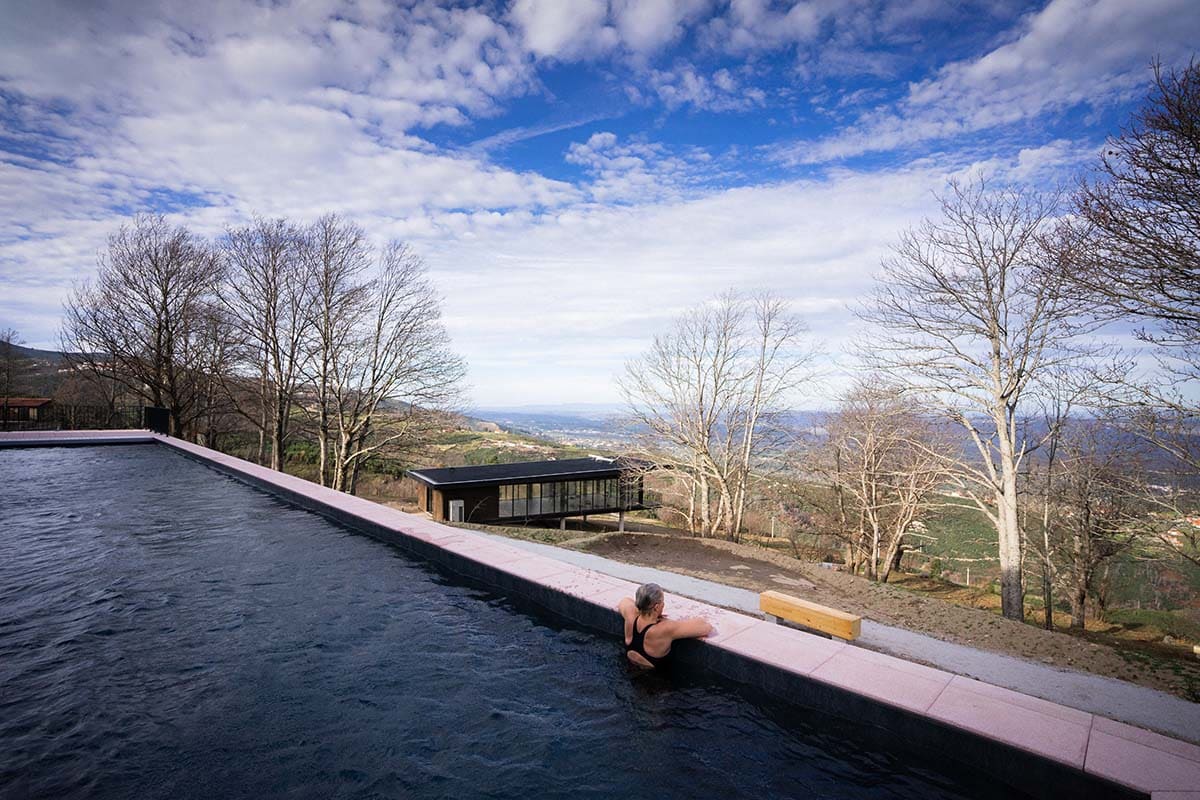Nature is good for our mental health. When did we start to understand ourselves as separate from nature? We are utterly dependent on and interconnected with the intricate cycles of life and death and the transformations in-between those stages that are constantly happening all around and within us – oxygen, water, sun, plants, animals and microorganisms.
Yet, cooped up in our comfortable, but artificial environments, we somehow became so disconnected from nature that it takes studies to remind us, to prove how beneficial She is to us – beyond being a resource for all the things we rely on to survive. And we stand in awe of the scientists’ findings because we have come to grossly underestimate nature’s impact on our overall well-being.
This blog post focuses on the discoveries of the last ~15 years regarding the importance of nature for our mental and emotional health.
The Importance of Nature
Humans have walked this Earth for over 300.000 years. We are not alien. Not only are we from Earth, we are of the Earth. Our bodies come from Her and will in one form or another return to Her. She is our home. She nurtures us. We have an innate connection with nature and yet, most people in developed countries have become alienated from Her.
In his book “The Last Child in the Woods” (2005), author Richard Louv coined the term “nature-deficit disorder” to bring awareness to the problem of humans, especially kids, spending less and less time outdoors and how this is affecting us as a civilisation.
Trains have only been around for a bit over 200 years. We have had electric light for less than 150 years. Up until the Industrial Revolution that started in 1760 and the above mentioned inventions, mankind was much more in tune with the rhythms and seasons of the Earth. Food was mostly grown and harvested locally.
The longer days in summer and shorter days in winter majorly impacted how people lived their lives. They relied on their senses and trusted their bodies more. This isn’t meant to glorify the past, just to point out that the disconnection to nature is – in the grand scheme of things and however rapid– a very recent development. Evolution is much slower. Therefore, our body and psyche are still hardwired to respond to nature in such profound ways that scientists have yet to fully understand and catch up with them.
The (Mental) Health Benefits of Nature
Various empirical studies have shown that contact with nature increases physical health, positive emotions and overall life-satisfaction. The research done around nature and its benefits for humans becomes more and more important as over 50% of the world’s population lives in an urban environment. In Europe, over 70% of people live in cities. The numbers are expected to rise further over the coming years.
Before we dive into the mental health benefits of nature for the individual, let’s quickly take a broader approach: There’s evidence that people who live in urban environments with green spaces have a lower risk of becoming obese or diabetic and are less likely to get a cardiovascular disease. Nature also seems to positively impact cognitive development in kids and improve birth outcomes.
People of all ages benefit from time spent outdoors when it comes to our ability to focus, creativity and productivity. Just looking at nature, for example from a hospital bed, reduces pain and speeds up the recovery process – this works even if it’s through a screen but is more powerful if it is through a window.
Exposure to green spaces in a neighbourhood also has significant benefits for society as it enhances a feeling of connectedness within a community and lowers crime rates. These are the results of a study of 2000 people in the UK from 2015. Another study that was conducted in the US supports that nature in cities has a notable impact on crime rates – it especially reduces the number of violent crimes, not so much theft, though.

Forest bathing (Shinrin-Yoku) boosts your immune system
A simple walk in the woods can boost your immune system. Shinrin-Yoku has its origins in Japan (the literal translation is “forest bathing”) and stems from ancient intuitive knowledge about the healing powers of immersing yourself in the woods.
Modern science has proven: It’s not about how far you go or how much you move your body but about the air your breathe. Trees release aerosols (phytoncides). When we breathe them in, it leads to a spike of so called Natural Killer (NK) cells in our body.
They are responsible for fighting infections and tumors. Furthermore, a walk in a forest compared to one in an urban area reduces the stress hormone cortisol by over 15% after just 15 minutes. High cortisol levels negatively impact NK cell activity.
Nature improves overall sense of well-being
Being surrounded by and exposing oneself to nature improves overall emotional and psychological well-being. Living near green spaces gives you a greater sense of purpose, makes you more satisfied with your life and helps you realise your own potential. These findings come from a study conducted between 1991 – 2008 that involved 10.000 people in the UK.
Exposure to nature reduces stress and improves sleep
Nature has a calming effect on our nerves. It reduces our heart rate as well as our blood pressure and lowers cortisol levels. Even just 10 minutes spent outside, either walking or just sitting, reduce physical and mental stress levels significantly. Furthermore, data suggests that exposure to green spaces improves our sleep quality – this seems to be especially true for men and people over the age of 65.
Nature reduces anxiety
Do you ever feel stuck in your head, going over the same problems over and over and over again? You feel overwhelmed by anxiety? Nature can offer you some relief. Try going for a 90-minute walk – it needs to be in nature, though, rather than an urban environment. Chances are it will reduce your levels of rumination.
The data this suggestion is based on, also showed that immersing yourself in green spaces will also reduce “neural activity in an area of the brain that is linked to risk for mental illness” as well as symptoms of anxiety.
Nature helps with depression
Nature is good for our mental health. Nature has restoring effect on our psyche. Being exposed to the daylight/the sun, the wind, grass, trees or a body of water calms, soothes and relaxes our nervous system. This is due to fundamentally different stimuli than, let’s say, traffic noise or concrete.
Green spaces help us to emotionally regulate ourselves, ground us in our bodies, boost our self-esteem, and enhance feelings of connectedness. It’s an all-around mood booster.
A long-term study of 900.000 people that were born in the Netherlands between 1985 and 2003 showed that kids who grew up with an abundance of nature around them were less likely to develop an addiction, schizophrenia, eating as well as mood disorders, or depression.

Exposure to nature: The sweet spot is 120 minutes per week
We are drawn to nature. It is powerful enough to promote the feeling that we’re escaping the rat race and getting “away from it all” – even if it’s just for half an hour. During lockdown, many people sought out green spaces and spent considerably more time outdoors than before. In a survey conducted in the UK, 45% of people reported that long walks helped them cope mentally during the pandemic.
Studies have not only looked at quality but also at quantity – the amount of time spent in nature, may it be through exercising, gardening, having a picnic, reading a book while sitting under a tree, or going for a walk or hike – and found that overall well-being was significantly improved after anything above two hours per week. It didn’t matter if someone spent two hours outside in one go or consistently for 20 minutes per day.
The positive impact nature is having on the human psyche peaked between 200 – 300 minutes per week. Any more time spent outdoors didn’t bring further mental health improvements.
Nature Retreats at New Life Portugal
At New Life we know about and work with the healing power of nature. We fell in love with and chose the Serra da Estrela Natural Park in Portugal as a home for our centre in Europe because of the breathtaking beauty of the landscape and the tranquility and serenity this setting provides.
The architecture of our facility uses many natural materials and panoramic views of the surrounding grassy slopes, streams, forests and mountains. We source our food as locally as possible and grow some of the produce that’s being used in our meals ourselves.
Nature and group excursions as well as outdoor activities are an integral part of our program. You will find abundant flora and fauna right at our doorstep or you can choose to venture further to explore the hiking and biking trails of the area, go horse riding, foraging for mushrooms and berries with experienced guides, watch birds, learn about the biodiversity of the Serra da Estrela in one of our workshops or go skiing during winter. Adventure activities also include a bridge circuit, ziplining, archery, swimming and paintball. Some of the above mentioned are included in our program, others can be booked separately.
The great outdoors of the Serra Estrela are not only the perfect backdrop for our wellness program but also compliment and sometimes get incorporated in the yoga, meditation and mindfulness practices that we offer. Our experienced counsellors and therapists can help if you are struggling with anxiety, depression, stress or burnout.